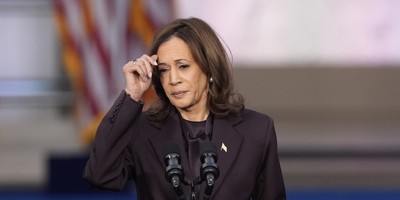Many companies are reportedly finding ways to avoid the impact of President Donald Trump’s tariffs, which continue to feature prominently in American political conversations — especially when it comes to the impact they could have on American consumers.
Trump recently announced a 100 percent tariff on foreign-made films, a move that puzzled many. However, the White House has indicated that they are not taking action on this just yet.
CNN reported that many companies have resorted to a tactic called “tariff engineering.” The practice is a legal strategy in which businesses design or modify their products in ways that enable them to qualify for lower import duties — or even avoid tariffs altogether. They might alter a product’s materials, configuration, or classification so that it fits in a less costly category.
From CNN:
For instance, Converse’s signature All Stars sneakers have a sole that contains felt as opposed to the fully rubber one traditionally seen in sneakers. That may have been a purposeful decision, since foreign-produced shoes with felt bottoms could be considered “house slippers” for the purpose of tariff codes. And house slippers have qualified for significantly lower tariff rates compared to other kinds of footwear in the past. (Nike, the parent company of Converse, didn’t respond to CNN’s request for comment. CNN could not determine the latest tariff rates for sneakers versus house slippers given their respective classification codes.)
Columbia Sportswear has not been shy about its use of tariff engineering. “I have a whole team of people that work … with the designers and developers and merchandisers and with customs, actually, and to ensure that during the design process that we’re considering the impact of tariffs,” Jeff Tooze, the vice president of global customs and trade at Columbia Sportswear told Marketplace in 2019.
Recommended
"Tariff engineering" sounds way cooler than vibe coding. pic.twitter.com/4fYWX3skyX
— Jordan Odinsky (@jordanodinsky) April 17, 2025
"Tariff engineering" is when a company tweaks a product to get a lower tariff rate.
— Kyle Chan (@kyleichan) May 20, 2024
The Subaru BRAT of the 1980s got around the 25% "chicken tax" on US truck imports by adding jump seats in the back to qualify as passenger cars.
Some more examples:
1/ pic.twitter.com/gfIGpOiLn5
Tariff engineering is fascinating.
— Trung Phan (@TrungTPhan) August 1, 2023
Take Converse Shoes: a fuzzy fabric covers large sections of the sole, but it’s not for fashion reasons.
The placement of the fuzzy material classifies the shoe as a slipper, which has a much lower import duty (<5%) than for wholly rubber sole… pic.twitter.com/uBYd4TwWbF
Another legal tactic companies are using to avoid tariffs is known as “warehouse bonding,” which involves storing imported products in a secure storage facility authorized by customs authorities. These products will not face tariffs until they are formally presented in the domestic market. Businesses can benefit from the practice because it allows them to defer tariff payments. Also, if they export the products, they can do so without facing US tariffs.
“Businesses can keep goods in these warehouses for up to five years without paying a tariff. They only pay the current tariff rate when they take goods out of storage,” CNN reported, noting that “It’s a bet that tariff rates will go down in the short or medium term.”
Jennifer Hartry, president of Howard Hartry, a customs broker that rents out bonded warehouses, told CNN’s Julia Vargas Jones that 95% of the inquiries she’s received are for goods coming from China.
Hartry said her family-owned business based by the Port of Los Angeles experienced a stark slowdown in recent years, but, since Trump introduced a slew of aggressive new tariffs, business has been booming.
There’s no limit to the monetary value of the goods stored in bonded warehouses — the only constraint is how much a business can fit in the space they’re renting.
For example, Hartry said the value of her tenants’ goods ranges from $37,000 to half a million dollars. Those goods include lithium batteries, metal rods and electronics such as TVs and treadmills.
Hartry said it’s not lost on her how much of a toll tariffs are taking on businesses. At the same time, she told CNN’s Vargas, “it’s saving our business, which we’re grateful for.
Currently, there is a 90-day pause on Trump’s tariffs. However, the duties imposed on Chinese imports are still in effect as the White House seeks to iron out a better trade deal with Beijing.























Join the conversation as a VIP Member